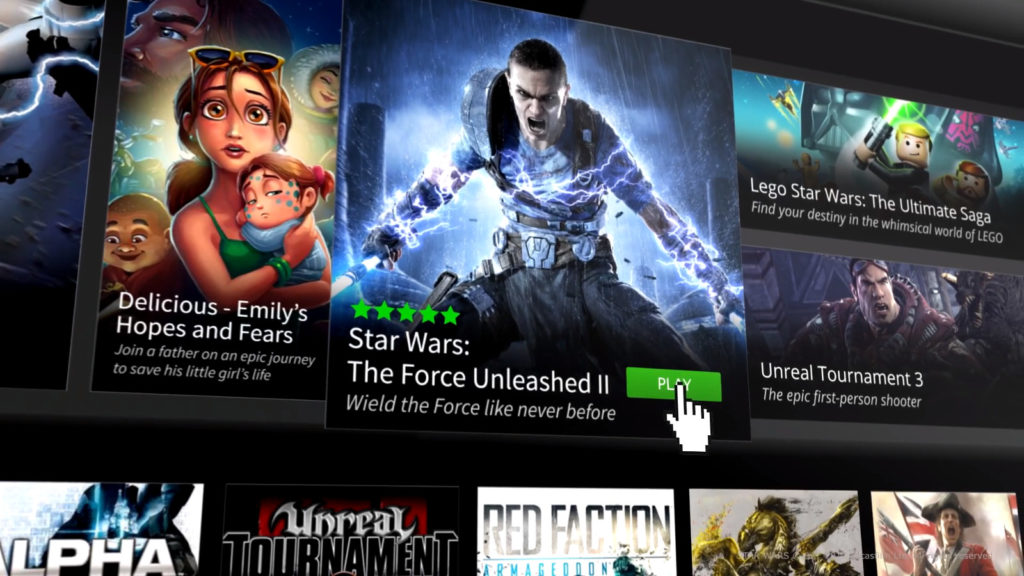SEO has entered a new era in 2026. AI tools are more powerful, users expect instant results and Google continues tightening its criteria for…
Q&A: Utomik is another subscription gaming platform out there

We’ve taken a look at a few noteworthy subscription gaming platforms before, covering the likes of Jump and Xbox Game Pass in more detail.
But Utomik is another platform to gain prominence recently, offering a library of over 600 games, so-called “smart download” functionality as well as high-profile deals with WB and Ubisoft. We conducted a Q&A with CEO Doki Tops.
Gearburn: How did the idea for the service come about?
Doki Tops (DT): A lot of the founding team of Utomik first got together in 2004. We were an indie and platform developer in a time when there was no real good model for indies or game sales other than AAA.
During this time we developed tech to start playing our games easily. This is because we hated that it was always so complicated, and long-winded (many clicks, long downloads), to start playing a game. Soon we discovered it had great value as it was something we could do for other games as well! MMO games lost a lot of users in the download, installation and patch process. We knew we could fix this. One click and instant gratification to get going into any game became the mission!
We quit developing games as getting good reviews did not convert to any good sales, and having a platform while also building games stretched our resources. We pivoted our company and started to license the tech that enabled big MMOs to be played via your browser or desktop in minutes, not hours, and in one click. In 2010, our tech successfully helped launch the first full 3D MMO in a browser on Facebook (GodsWar). It had over one million monthly active players.
In the following years we licensed the tech to many publishers, however we felt the full potential of our tech was not used, and we had some great innovations in the pipeline. We knew we could apply our tech without any code changes from developers and we had a robust model to predict what users need to download before they need it.
In 2014 we realised that our technology combined with an all-you-can-game business model is a match made in heaven. The process went really fast. Users that used our tech for the MMOs asked us to build our own Steam as they loved the user experience. We also knew subscription models existed for music (Spotify) and for film (Netflix) but not for games. At the same time we did not want to compete with Steam in their model. We figured that we were uniquely positioned to do this with our tech and experience.
The streaming model done by OnLive proved to be too expensive and created a lot of user experience issues. Our tech simply provides the same experience you used to have, however you get into the game much faster (the best we’ve done is over 100x faster). In short we had a model, we had the tech, the first working title of Utomik was ‘Gameflix’ (cheesy but easy to pitch to investors). We then got to work and here we are today with well over 660 games live from some really big, awesome publishers and developers.
Gearburn: For the uninitiated, how exactly does it work? Do I need a beastly internet connection?
DT: Utomik has some amazing tech that does some magic when you first start a game. We only download a small part of the game so you can jump into the game really quick. The way it works is that we first check your internet speed when booting up the game. Based on your connection the size of that initial package will vary, but for most titles in our library you can enjoy the game within minutes, tops.
After you have downloaded the first part of the game and are already enjoying playing it (sic), the rest of the necessary files will download in the background to your PC. Your play session will never be interrupted by the download and there is no input delay or anything like that.
Gearburn: Is it possible to download the desired games and play without an internet connection?
DT: Sadly no, we do get this request more often but security wise it’s challenging. In a store like Steam it’s not such a problem as you play what you buy. If we have an issue it means someone can play 670 games for free, and soon that will be over 1000 games. But it is something we think could add value, first however we are focusing on things like leaderboards and achievements.
Gearburn: We’ve also seen Jump launching recently, focusing on indie fare and using a hybrid download model of sorts. What do you make of them?
DT: For us they are proof that our mission that we started years ago makes sense. I would say our game portfolio has a lot more depth. An indie lover will love us with over 200 indies to choose from with an average rating of 85% on Steam. We add around 10 hand-selected indie games every month and more day one indie releases are coming. Besides indie, if you want to relive some great AAA classics, are into point-and-click adventures, retro games or high-quality casual titles, we are there for you as well.
It’s great to see another service shine a light on must-play indie titles that flew under a lot of people’s radar. Indie games have a special place in our heart and we will keep making sure that they get the attention they deserve. We feel we are in a unique position to show these indie gems to a whole new and bigger audience.
Gearburn: Over 600 sounds like a big number for the library and there are some big publishers, but I also notice a lot of budget PC titles and mobile ports. So tell us a little more about the library and how games get chosen?
DT: Our quality of releases has greatly improved. In the early beginning of our mission to ‘Unleash Gaming’, convincing developers and publishers to put their game in a subscription model was really, really hard. We could not really be picky. Also, as a small startup our budget to buy content was very, very low. The cool thing is that some of the lower quality titles helped us secure the high-quality content we have today.
And we also notice that we want to match content better. Those “mobile ports” are likely our casual games which are of really high quality, and loved and craved by many of our female users and more men then you would expect. We are working hard on matching content better so that you get to see the selection that best matches your profile.
About the selection process. Today we actually refuse more content than we accept. We are working hard on raising the bar of what we want to have on our platform. We have a content acquisition and content approval team that’s mixed with our community, which I think is an awesome mix (something we will talk about more openly soon). Our selection process is about matching content with our user base and looking to see if content will help attract a bigger audience.
Gearburn: What kind of user numbers have you seen for the service thus far?
DT: We do not share our numbers currently but we have been growing between 50% and 100% quarter over quarter for the last four, now almost five quarters. We are set to make a jump with the freshly announced Ubisoft and Warner Bros (partnerships). We are working on several other cool partnerships in the near future. Our Facebook community is growing like mad and we are starting to reach critical mass content-wise. I’m really happy.
Gearburn: Are there any plans to expand beyond PC to say, mobile or console?
DT: We don’t give out exact plans but mobile is something that is on our mind. Consoles are walled gardens but never say never.
Gearburn: Could you give us a breakdown of how publishers/developers are paid out?
DT: We look at every player and where he spends his or her time every month, we then do a similar revenue split to other app stores with the developers/publishers on the subscription fee based on those engagement numbers. Basically your money goes to where you spend your time [Utomik has since confirmed that it uses the same 70/30 revenue split as Apple’s App Store – ed].
Gearburn: We’ve seen Jump and the Humble Store get behind devs financially as well to help them finish a game. Is that something Utomik plans to do, in exchange for, say, an exclusivity period of sorts?
DT: This is definitely something we are already doing and looking into expanding. We believe in a combination of support: monetary, marketing, P. and goodwill (sic). Timed exclusivity is a sensible way to make a partnership work when we get behind a developer to help them finish a project.
Some of the folks that work for us have an extensive network that we also leverage to help provide indies with more exposure, also outside of Utomik. The most fun thing up to now has been sponsoring events, like the Indie Arena Booth at Gamescom and the MIX at PAX West, that provide indies with a podium to get to the next level. We even introduced our own award, the ‘Rising Star Award’, at Gamescom that we want to bring to other events too. It’s just another way for us to show our support to the indie community. We want to expand that support going into 2018.

